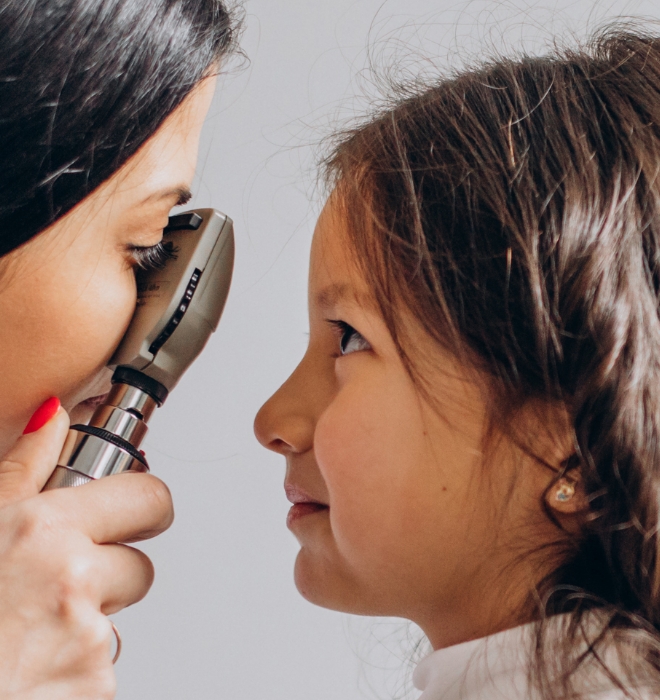Service & Facility
Service & Facility
Paediatri Ophthalmology

Children’s eye care requires specialized attention to ensure their proper development and address any potential disorders or diseases. Early detection and treatment of childhood eye conditions are crucial for their physical, emotional, and social well-being. Here are some important points to consider:

- Vision Screening: Infants should undergo vision screening performed by their paediatrician within the first year of life. Regular vision screenings should continue throughout childhood, especially between the ages of 3 and 5 years. This helps detect amblyopia (lazy eye) or any risk factors associated with it.
- Comprehensive Eye Exam: Children with a family history of eye conditions such as amblyopia, strabismus, congenital cataracts, congenital glaucoma, or retinoblastoma may benefit from a complete eye exam. Additionally, children with certain medical conditions like intellectual disabilities, developmental delay, Down syndrome, neurofibromatosis, prematurity, or behavioural issues should undergo a comprehensive eye examination by a paediatric ophthalmologist.
- Importance of Early Intervention: Timely diagnosis and treatment of paediatric eye conditions are vital for ensuring proper visual development and preventing long-term consequences. Early intervention can improve outcomes and minimize the impact on a child’s overall development.
- Seeking Specialized Care: If you suspect any eye problems or have a family history of eye disease, it is advisable to schedule an appointment with a paediatric ophthalmologist. These specialists have expertise in managing eye conditions specific to children and can provide the necessary care and treatment.
By prioritizing your child’s eye health and seeking appropriate medical attention, you can help promote their visual well-being and overall growth.
Regular screenings and comprehensive eye exams play a crucial role in identifying and addressing potential issues early on.
